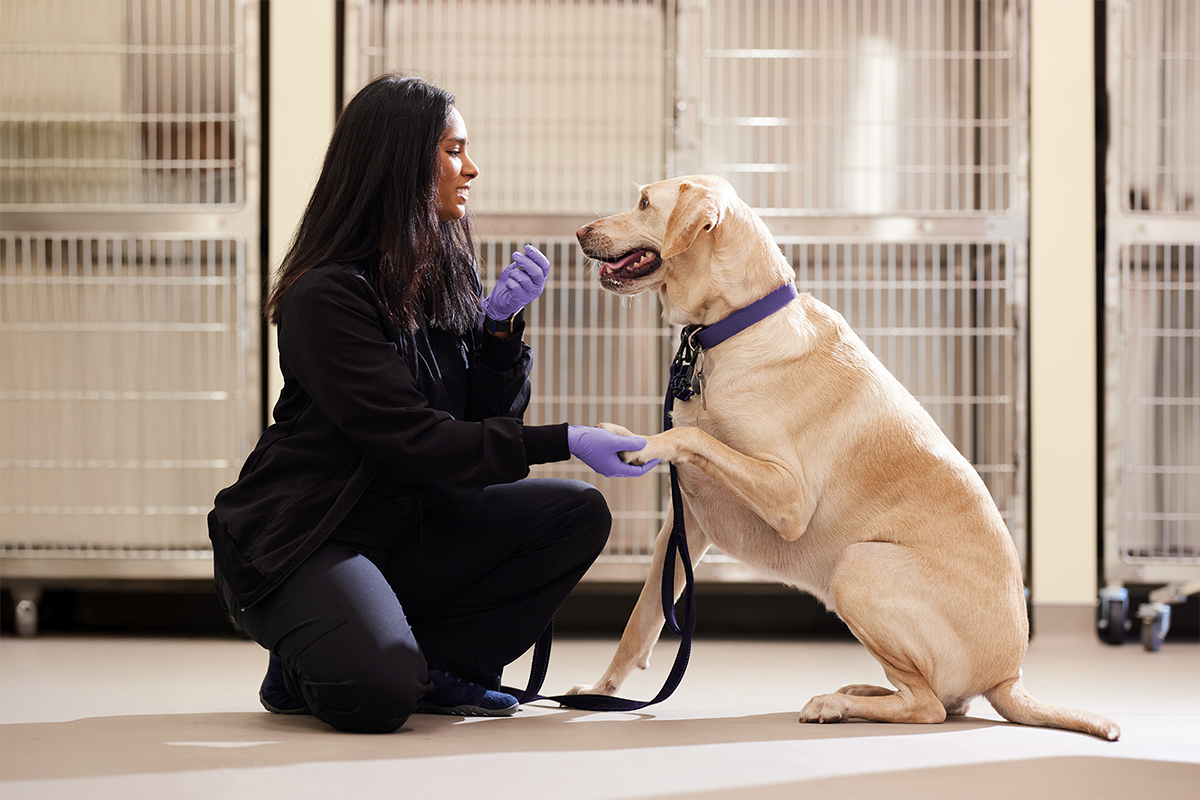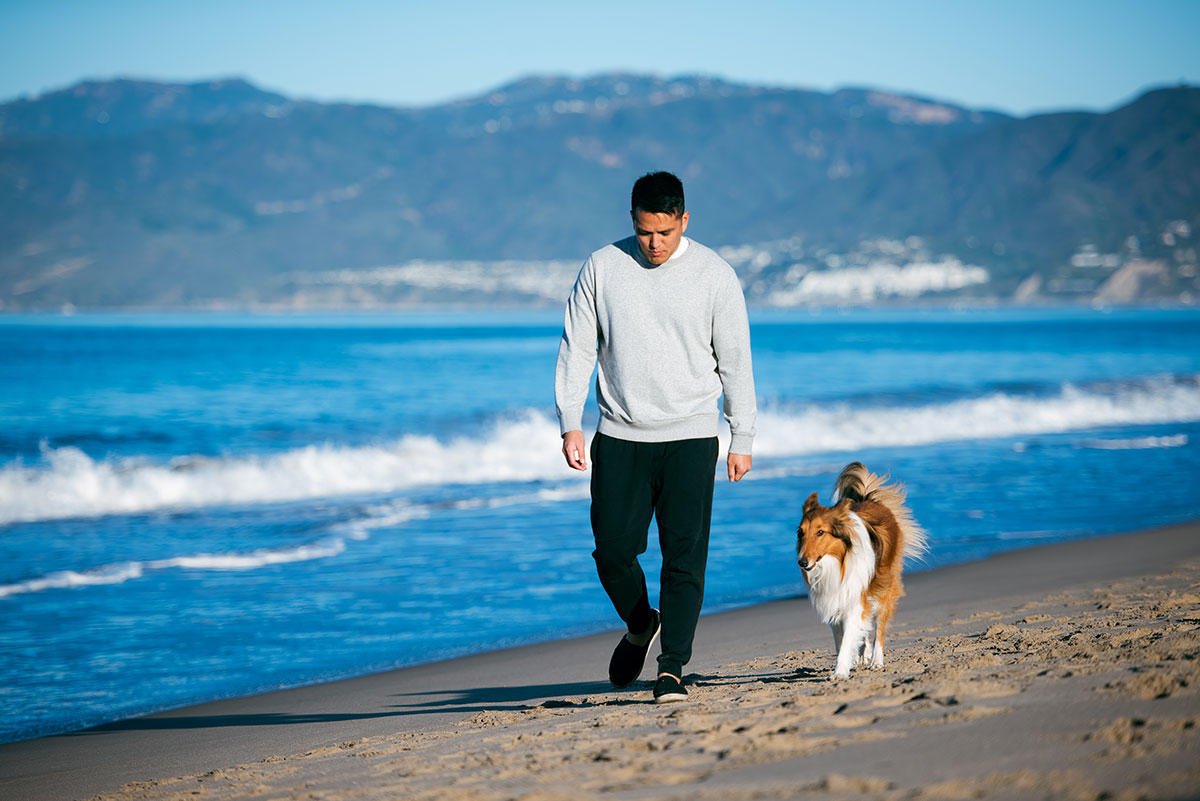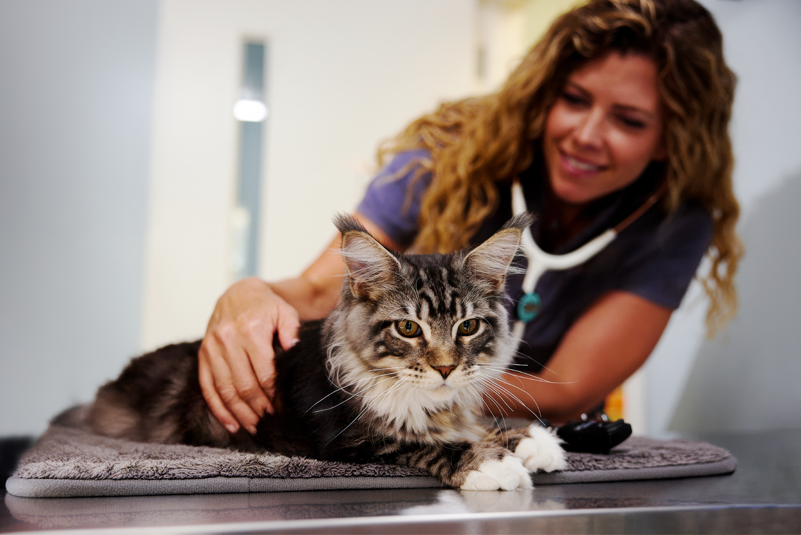Behind the Lab Coat: Vet Tech/RVT Stories from the Antech™ Team

From hands-on care to supporting clinics — their journeys continue to make a difference
At Antech™, we’re proud to have so many veterinary technicians (vet techs) and registered veterinary technicians (RVTs) on our team. Their experiences working directly with patients and clients shape the way they serve our partners today.
We asked a few of our Associates to share their stories about being a vet tech/RVT — what inspired them to pursue this path, what they loved about being in practice, and what inspires them today.
Candice Spitler, LVT – Lead Lab Tech, Detroit Stat Lab
Q: Tell us about your background.
“I’ve been a vet tech for 29 years, and I’ve been with Antech as a Lead Lab Tech for the Detroit Stat Lab for 4 years. This job was a great transition from working on animals in the clinics and hospitals to now utilizing my years of experience and knowledge to produce the highest quality results for our veterinary teams in the Southeast Michigan area. I truly love my job and love coming to work. Few can say that.”
Ariana Lung, RVT – Technical Support Specialist
Q: What drew you to veterinary medicine?
“I have always wanted to work in the veterinary field since I was a kid. My aunt was a zookeeper for several years and she opened my eyes to working with animals. Then after I got my first cat, I wanted to make sure she stayed happy and healthy for many years to come.”
Q: What’s it like being a vet tech?
“Veterinary technicians are the backbone of clinical practice. We perform many of the treatments, help keep animals safe and healthy, provide client education, and so much more. While it is a very rewarding field, it is not without its ups and downs. At the end of the day, we are all in this for the animals and preserving that human-animal bond.”
Darlene Cannon – DSM, RVT
Q: Why Antech?
“I love collaborating with veterinary professionals to help make their days more productive, more efficient and help them create better outcomes for their patients. I feel that when their business does well our business does well — it’s simple. When our business does well, we know we have created a better world for pets.”
Q: Why did you become an RVT?
“It is a funny thing as an RVT because people often ask you, ‘Do you want to be a vet eventually?’ The answer is no. I wanted to be an RVT because I wanted to make a difference in the life of the pet and the client. Clients look for a kind, trusting person to help them understand and [sometimes] make difficult decisions for their pet. Veterinary medicine treats animals, but it is 70% client relations. I wanted to be the person to bridge the gap.”
Q: What are you most proud of?
“Over my 25 years working in practice, I took in numerous co-op students, mostly from high school, but some from tech school and even nursing students. It makes my heart swell whenever I go into a practice or to a conference, and someone comes up to me and says thank you. Thank you for taking the time to introduce them and help them gain experience in veterinary medicine. Co-op programs help people find their path.”
Q: What’s it like to be an RVT?
“It’s fluid. Every day is different. Every client is different. It is never boring. Yes, it can be an emotional roller coaster but extremely rewarding. Whether you’re in the exam room, prepping a patient for surgery, or even scanning ultrasound patients, you always can learn and grow. I think that’s the best part.”
Chelsea Smith, LVT – Strategic Account Representative, MVH
Q: What was your favorite thing to do in the clinic?
“I loved working in specialty medicine and learning all of the different procedures like pericardiocentesis. I got really proficient in performing oscillometric blood pressure to where I could find a pulse when others couldn’t. Working in that environment really made me feel like I was utilizing my knowledge and skill to the best of my ability.”
Q: What should vet professionals know about being a vet tech/RVT?
“We are the lifeblood to any clinic. We help comfort the client and explain to them what will be occurring that day in a way they will understand. I was also in charge of keeping the day going. Keep on top of procedures and make sure the doctor gets into each intake and discharge in a timely manner. There is a meme about what all LVTs do vs. an RN but it is true. I am a phlebotomist, radiologist, nurse, counselor, and much more.”
Q: Tell us about a favorite patient.
“His name was Bear. I was working in cardiology, and he was diagnosed with endocarditis. He was a Blue Heeler mix that was very shy and timid, but since he had to unfortunately come see us multiple times a month, we bonded… I would limp walk side by side with him throughout the hospital so he wouldn’t feel insecure. This made his owners smile and know he would get great care. They even remembered this and thanked me for doing so in a card after he lost his battle and went to heaven. We kept him happy with his little tail wagging for ~8 months and he will always have a spot in my heart.”
Q: Why Antech?
“I love that I get to reach clinics on a broader scale. My whole goal is to advocate for pets and the staff. I want each pet to get gold standard care while the technicians and doctors are not wasting their time. … At Antech we do not test just to test. Each of our profiles have an actionable item that is not only important to the patient but can help increase client compliance and growth of the clinic. If I am recommending a test, I am doing so with a full belief that it is a benefit to all involved.”
The spirit of veterinary technicians lives on in everything we do
From guiding clients through difficult decisions to bonding with patients, mentoring students, and now supporting clinics in new ways, these stories show how the skills and heart of vet techs live on in every role at Antech.
We’re proud of our Associates who carry their clinical expertise forward, building stronger connections with our partners and continuing to make a difference in the lives of pets every day.




